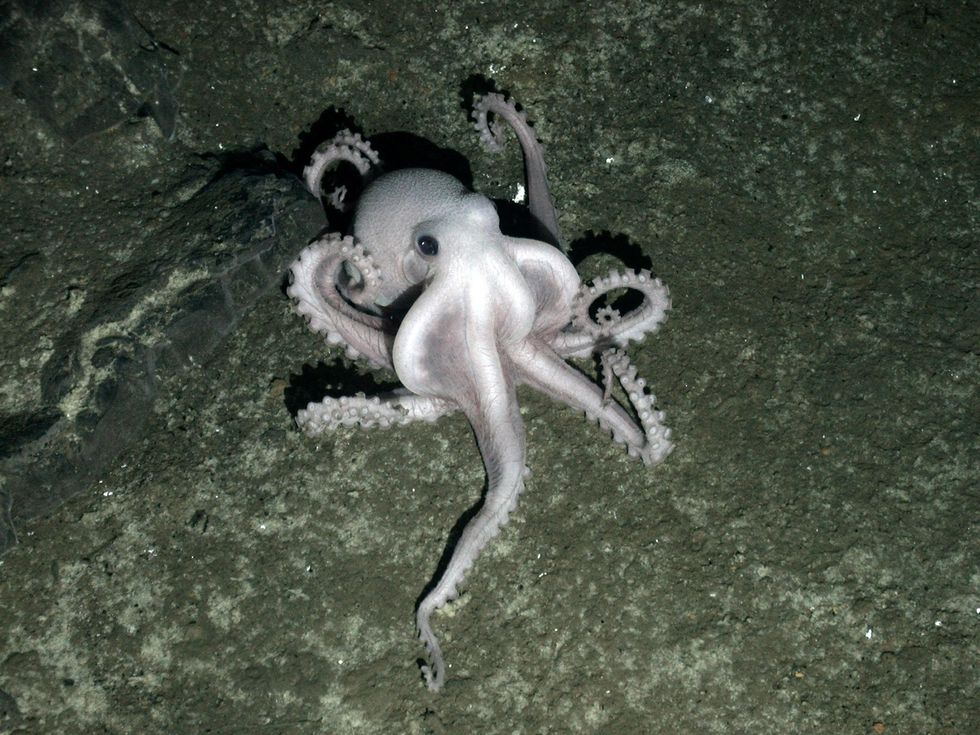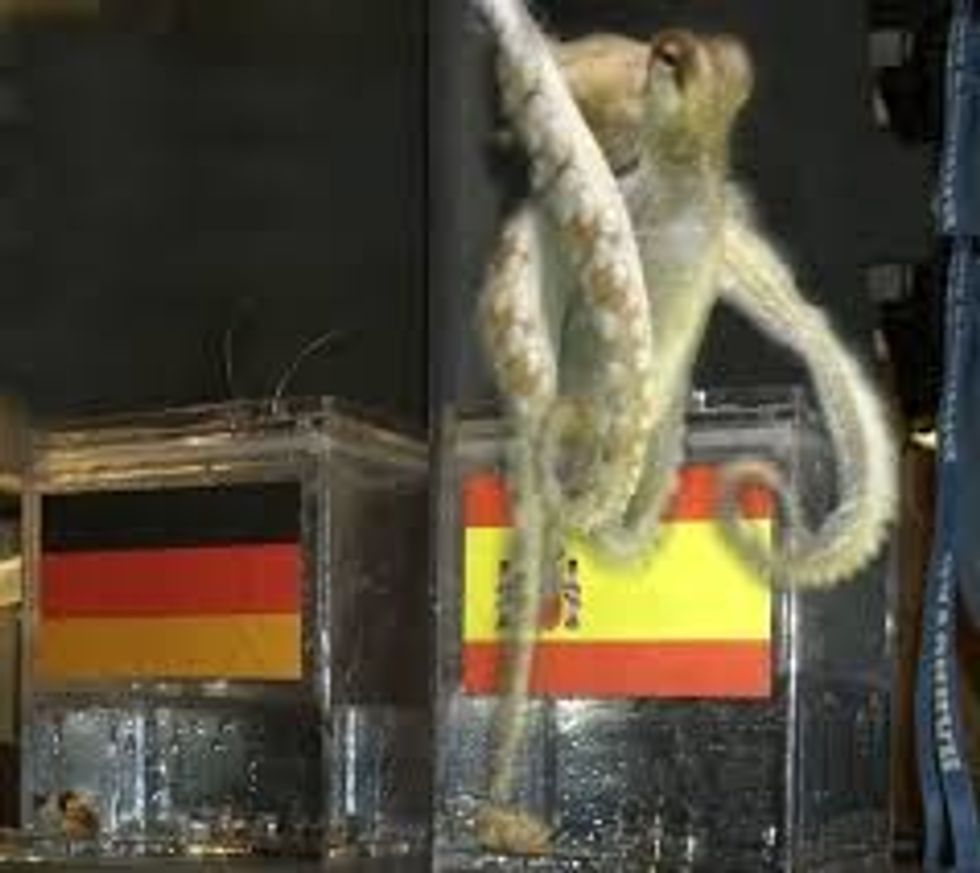Lewis Henderson
Guest Reporter
Octopuses are the most likely animal to replace humans should we ever go extinct, scientists have revealed.
According to world-leading experts, the eight-limbed creature is the main protagonist that can take over the world.
Professor Tim Coulson from Oxford University is one of the world's leading zoologists and biologists, and he says they are best equipped to build potential civilisations underwater.
He said octopuses: "Dexterity, curiosity, ability to communicate with each other, and supreme intelligence."

The professor believes that over millions of years, octopuses could develop their own methods to hunt on land, in a similar method to how humans hunt in the sea.
Coulson ruled out primates replacing humans, saying they would go extinct with us as they face similar challenges to what we do.
Speaking to The European Magazine, Coulson said: "'Their ability to solve complex problems, manipulate objects, and even camouflage themselves with stunning precision suggests that, given the right environmental conditions, they could evolve into a civilisation-building species following the extinction of humans."
He added: "'Their advanced neural structure, decentralized nervous system, and remarkable problem-solving skills make octopuses uniquely suited for an unpredictable world."

"In a world where mammals dominate, octopuses remain an underappreciated contender. Their advanced cognition, tool-use, and ability to adapt to changing environments provide a blueprint for what might emerge as the planet's next intelligent species after humans."
Octopuses already have the capability of being able to breathe for 30 minutes outside of water and Coulson believes their smartness and tenacity would be key components to them taking over the planet.
"Given the octopus's remarkable intelligence, adaptability, and diverse range of survival strategies, it wouldn't be the most far-fetched bet to imagine them thriving in a post-human world."
Birds and insects possess several qualities that would make them capable of performing some of the skills that are done by humans.

These include building tower-like structures and strong homes, but they lack several abilities that humans and octopuses have, such as their intelligence.
Professor Coulson concluded: "Would octopuses build vast underwater cities and come onto land wearing breathing apparatus to shoot a deer? We've no way of knowing. But we certainly can't rule it out.
"'Humans learned to catch fish and to navigate over and underwater, so it is also possible, if not probable, that octopuses might do the same on land.
"Could octopuses replace humans - and potentially also primates - if they were to die out? Absolutely."
Find Out More...
According to world-leading experts, the eight-limbed creature is the main protagonist that can take over the world.
Professor Tim Coulson from Oxford University is one of the world's leading zoologists and biologists, and he says they are best equipped to build potential civilisations underwater.
He said octopuses: "Dexterity, curiosity, ability to communicate with each other, and supreme intelligence."

The professor believes that over millions of years, octopuses could develop their own methods to hunt on land, in a similar method to how humans hunt in the sea.
Coulson ruled out primates replacing humans, saying they would go extinct with us as they face similar challenges to what we do.
Speaking to The European Magazine, Coulson said: "'Their ability to solve complex problems, manipulate objects, and even camouflage themselves with stunning precision suggests that, given the right environmental conditions, they could evolve into a civilisation-building species following the extinction of humans."
He added: "'Their advanced neural structure, decentralized nervous system, and remarkable problem-solving skills make octopuses uniquely suited for an unpredictable world."

"In a world where mammals dominate, octopuses remain an underappreciated contender. Their advanced cognition, tool-use, and ability to adapt to changing environments provide a blueprint for what might emerge as the planet's next intelligent species after humans."
Octopuses already have the capability of being able to breathe for 30 minutes outside of water and Coulson believes their smartness and tenacity would be key components to them taking over the planet.
"Given the octopus's remarkable intelligence, adaptability, and diverse range of survival strategies, it wouldn't be the most far-fetched bet to imagine them thriving in a post-human world."
Birds and insects possess several qualities that would make them capable of performing some of the skills that are done by humans.

These include building tower-like structures and strong homes, but they lack several abilities that humans and octopuses have, such as their intelligence.
Professor Coulson concluded: "Would octopuses build vast underwater cities and come onto land wearing breathing apparatus to shoot a deer? We've no way of knowing. But we certainly can't rule it out.
"'Humans learned to catch fish and to navigate over and underwater, so it is also possible, if not probable, that octopuses might do the same on land.
"Could octopuses replace humans - and potentially also primates - if they were to die out? Absolutely."
Find Out More...
